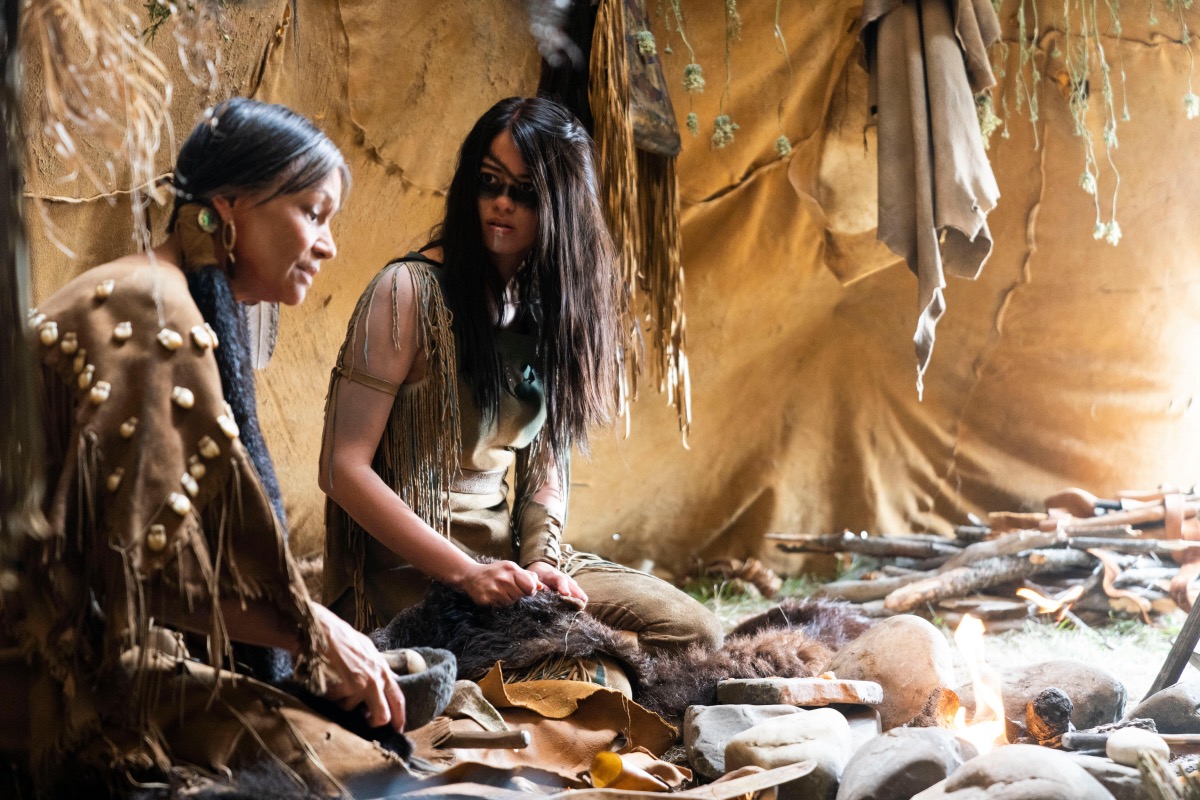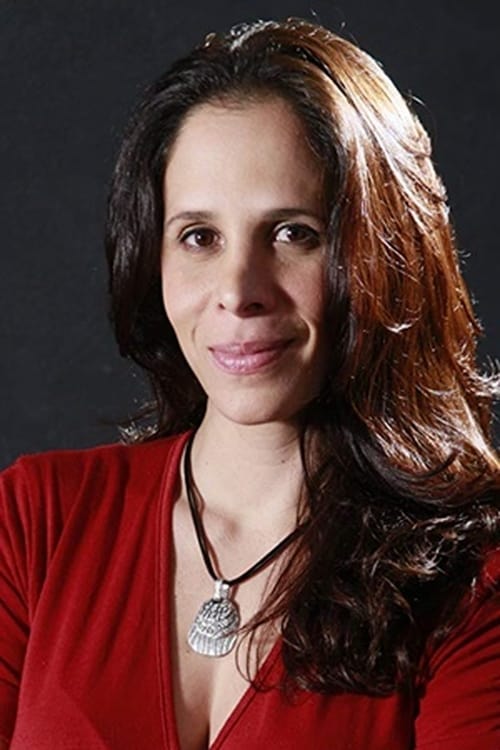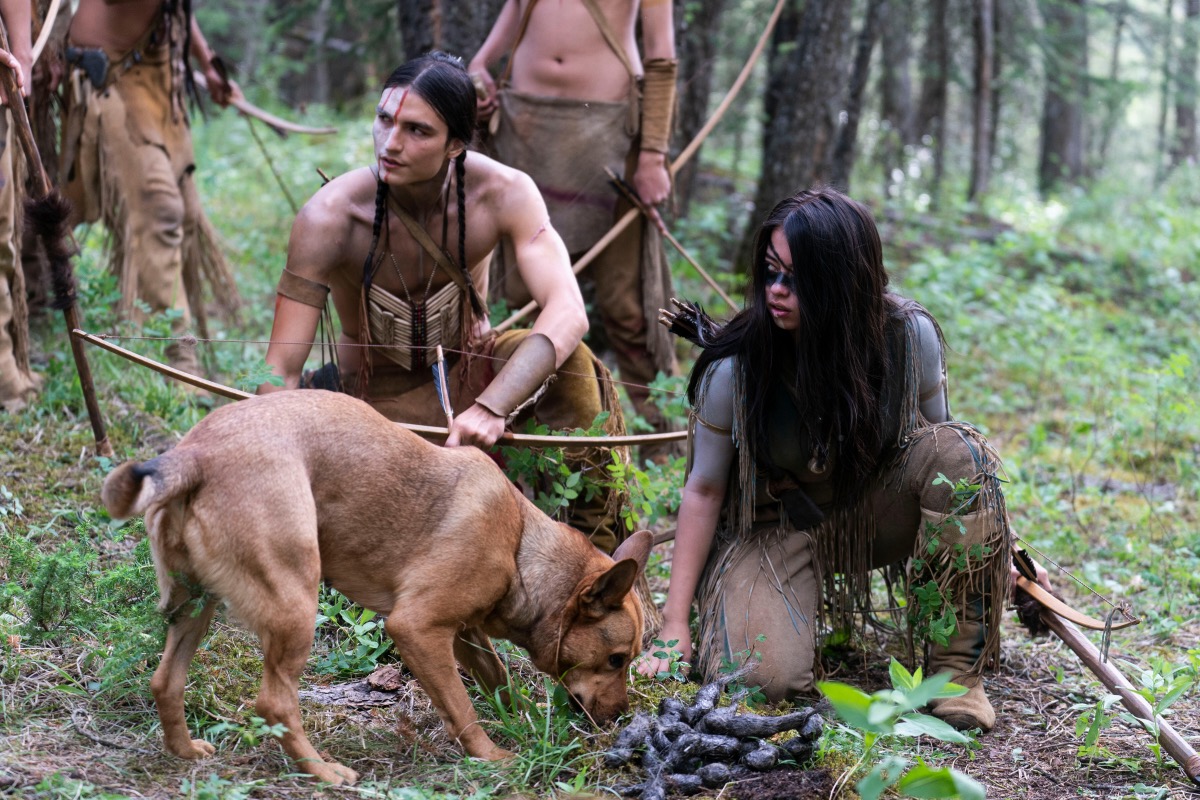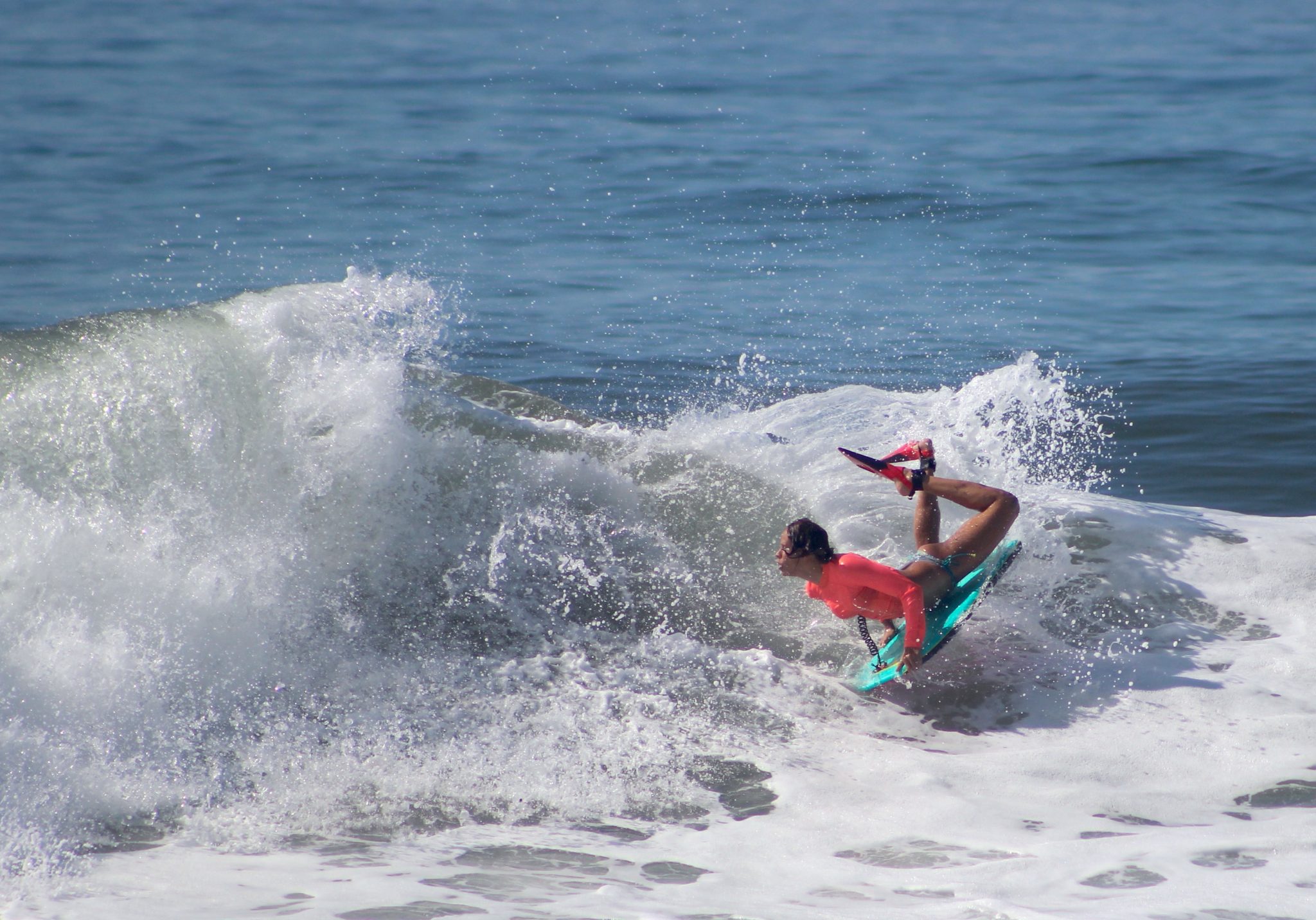

Set in the Comanche Nation 300 years ago, ‘Prey’ is the story of a young woman, Naru, a fierce and highly skilled warrior. She has been raised in the shadow of some of the most legendary hunters who roam the Great Plains, so when danger threatens her camp, she sets out to protect her people. The prey she stalks, and ultimately confronts, turns out to be a highly evolved alien predator with a technically advanced arsenal, resulting in a vicious and terrifying showdown between the two adversaries. Aruka (Michelle Thrush) and Naru (Amber Midthunder), shown. (David Bukach/20th Century Studios)
Predator is known for its high-tech hunting tools—or so says Claudia Castello, the editor who put together Hulu’s popular new prequel, Prey. In this installment, the alien hunter lands 300 years ago in North America and battles French colonizers and Comanche warriors.
Starring Amber Midthunder as Naru, Prey centers its story around the Comanche, inviting its North American audience to identify with the Indigenous people rather than the interloping Europeans. Part of that is language. While you can watch the film entirely in Comanche, the Native American actors mostly communicate in English, while the French fur trappers speak solely in French.
The creative team debated that choice, erring on the “commercial” side, according to Castello. She also attests that having the script mostly in English made it easier on the performers.
But notably, the white folks in the film communicate in unsubtitled French (another choice she spoke to). Naru can’t understand them and neither (generally) can we. It’s a clear division of who we are supposed to empathize with and who we are not—and it’s the opposite of what Hollywood normally does.


Brazilian-born film editor Claudia Castello
Brazilian-born and raised Castello prefers these types of films, ones that center underrepresented voices. She’s had an impressive career working on them, including frequently collaborating with Black auteur Ryan Coogler—she edited his Black Panther, Creed, and Fruitvale Station.
And she describes her craft as “sculpting”—that is, receiving all the footage, the many, many takes, and putting them together using this “whole emotional language… [and] visual language… to tell the story in a way that the audience will be invested and understand everything.” She calls editing the “third time the movie is written,” the first being the script and the second the filming.
As the last phase, editing is particularly important as to whether a film hits its emotional notes.
In Prey, there are lots of close-ups of traditional Comanche practices—think grinding herbs in a comal. I asked Castello why she included all those shots. “The Predator has its gadgets,” she said.”Naru also has hers… [She’s] dealing with other kinds of elements, which were the plants, the flowers. [And then she] started making her own tools. So I think that was a very important detail, to make that parallel between what he uses and what she uses.”
It’s smart filmmaking and not a connection I would have made without Castello’s insight.


David Bukach/20th Century Studios
Talking with her, it’s clear she’s passionate about Prey. “I saw myself as Naru, this indigenous girl who grows up in an environment that doesn’t welcome a woman in power,” Castello said.
As a film and television editor, Castello is in a male-dominated industry. Women made up just 22 percent of the editors of the top 250 grossing films of 2021, according to the Celluloid Ceiling report of that year.
When asked about the importance of diversity behind the camera, Castello explained: “I’m gonna give you an example that’s hypothetical… [Let’s say] we’re making a movie and the main actress is a Brazilian woman. And there are ten white men in the room that come from the same background. And they want to say how this Brazilian woman should feel. And they’ll ask for a woman’s opinion, just one woman… and when they do, it’s just for protocol. They’re not really listening. I’ve seen this kind of situation happen. And it’s something that shouldn’t happen.”
And if it wasn’t enough for her to be waging those battles at work, Castello spends her free time in the male-dominated sport of surfing—including winning bodyboarding competitions. She says the sport “saved my life,” growing up in Brazil with a single, working mom who had to leave her kids to entertain themselves.
Still, Castello is the first to admit, “surfing’s very competitive and the guys are very aggressive. There’s a lot of testosterone in the water.”


Courtesy of Claudia Castello
And also on the palm tree-lined freeways. Castello recently left Los Angeles and its hyper-competitive culture for calmer waters in El Salvador. “Here, I can surf every single day,” she said. “I have my one to two secret hours of surfing, so I can work 12 to 15 hours and I’ll survive and I’ll be happy.”
She picked the place in part because it is an exception to the usually masculine surfing culture. There, Castello reports, “the locals teach. And it’s a good place for learning to surf, so there are a lot of females in the water. And all the locals protect them because they’re paying for the classes.”
Just as she chooses her surf spots, Castello is picking her projects differently. Leaving Los Angeles has meant a switch in her career, more TV and fewer movies, but not a slowdown. Right now, she’s working on an upcoming series for Hulu, Black Cake. It tells the story of a runaway bride who disappears into the surf off the coast of Jamaica in the 1960s and is feared drowned or a fugitive on the run for her husband’s murder.
For Castello, “it’s the first time I have the opportunity to work on a project that really comes from a woman’s point of view… I’m very happy about this.”
And she deserves it.
***
A writer and activist, Cristina Escobar is the co-founder of latinamedia.co, uplifting Latina and gender non-conforming Latinx perspectives in media. She’s a member of the Latino Entertainment Journalists Association and writes at the intersection of race, gender, and pop culture. Twitter: @cescobarandrade


